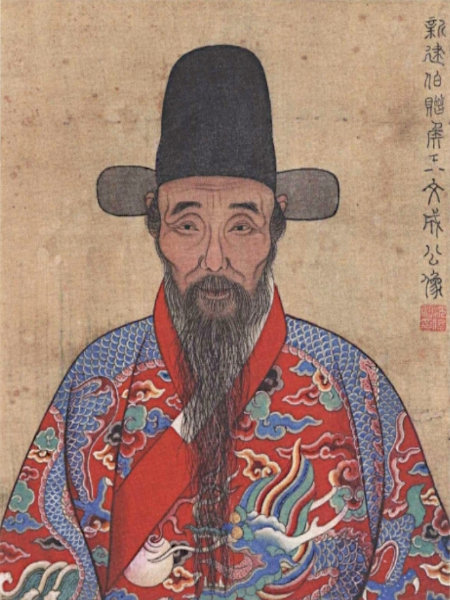RIGHT
The ‘Right’ in Human Rights: Aristotelianism and Neo-Confucianism at the basis of the EU-China Dialogue
Project
What is RIGHT?
RIGHT is an EU funded, 3-year global Marie Skłodowska-Curie project aiming to provide a definitional human rights framework on the basis of Aristotelianism and Neo-Confucianism, thus filling a major gap in human rights theory and practice and offering a basis for the sustainable continuation of the EU-China Human Rights Dialogue.
The EU engagement on human rights with China is a fundamental pillar of the EU-China Strategic Partnership in the form of a bi-annual Human Rights Dialogue. However, the last round of the Dialogue brought no substantial results, while the Chinese delegation did not take part in the continuation of discussions held on 2 April 2019 that provided for an exchange of views with civil society. A reason for this impasse has been that, whereas the EU adopts a liberal view of human rights, the Chinese side argues that human rights should primarily improve peoples’ living standards. This reveals a fundamentally different perception on the very definition of human rights between EU and China.
Although there is a plethora of ad hoc human rights’ definitions and categorisations, no comprehensive definitional human rights framework currently exists. Definitional human rights framework is the intensional definition of human rights according to logical semantics, i.e. the set of essential attributes, which individual human rights as a class of ideas have in common, and which determine the applicability of the term in any particular situation. In order to fill the gap, RIGHT deploys, for the first time in legal scholarship, two major, premodern philosophical traditions bringing together the Eastern and Western worldviews: Aristotelianism and Neo- Confucianism. Given that the EU is currently negotiating with China a comprehensive agreement on investment, it is vital, also in view of the Belt and Road Initiative, to engage with China in a meaningful and sustainable way, by developing and sharing a solid DHRF as common ground and basis for further dialogue. The project becomes particularly timely due to the revival of Confucianism in Chinese politics.
Impact
- RIGHT will contribute to the knowledge-based society by converting philosophical ideas into human rights tools and policies, thus fostering European innovation and excellence, and enhancing the dynamics and competitiveness of the European Research Area
- RIGHT will nourish an original course and import Neo-Confucianism as a new field of research in the EU, while laying the groundwork to future related projects based in Europe
- RIGHT aims to tangibly improve the EU-China relations and thus directly promote Goal 16 of the 2030 Agenda for Sustainable Development, a strategic priority of the EU also encompassed in the new 2021-2027 EU programming (Horizon Europe)
Research
RIGHT’s overall objective is to articulate a definitional human rights framework that would overcome the theoretical confines of legal positivism and the practical deadlocks of the EU-China Human Rights Dialogue.
To achieve that, RIGHT argues that one needs to resort to a philosophical system that:
- is open to essential meaning
- induces less antagonism by being more inclusive and empathetic.
The project seeks to fill the gap by appealing to two philosophical systems that provide a convincing rejoinder to both a) and b) while bringing together the Western and Eastern worldviews: Aristotelianism and Neo-Confucianism (Daoxue 道学).

Methodology
Aristotelianism and Neo-Confucianism have striking similarities. Firstly, they share a common inductive approach: Aristotle’s induction or epagōgē (ἑπαγωγή) reaches out to the to ti ên einai (το τί ἦν εἶναι), i.e. the definition of things through a type of insight that leads to essential meaning, while Neo-Confucianism introduces the idea of pure knowing or liangzhi (良知), also a type of inductive reasoning suggesting that all ideas have essential content, the Li (理).Secondly, both traditions offer comprehensive accounts of virtue ethics and are structured around the idea of inter-subjectivity, thus addressing the empathetic deficit of legal modernity and offering better terms for a sustainable, global approach to human rights.
Regarding the Aristotelian component, RIGHT focuses on:
- the Organon and particularly Aristotelian induction, as it reaches out to essences;
- the Nicomachean Ethics and particularly the ideas of corrective and distributive justice
- the Metaphysics, and specifically Aristotle’s potentiality-actuality theory.
RIGHT’s approach is that human rights constitute a later expression of justice and should thus be studied within a framework of a history of ideas.
Regarding the Neo-Confucian component, RIGHT focuses on Zhu Xi’s and Wang Yangming’s commentaries on the Four Books of Confucian thought: the Analects (論語), the Mengzi (孟子), the Daxue (大學) and the Zhongyong (中庸).
RIGHT evaluates the convergences and divergences between the Aristotelian epagōgē and the Neo-Confucian liangzhi to configure a unified definitional human rights framework. RIGHT’s hypothesis is that such a joint framework is possible for the two traditions treat in a similar way the definitional structure of concepts: whereas Aristotle suggests that any proposition contains an essence and other parts, for Wang and Zhu these are constituted by some combination of essential coherence, the Li (理) and other worldly endowments, the Qi (气). This scheme fits perfectly into the intensional definition of human rights, which suggests that a definitional human rights’ framework must be composed of the genus and the differentia, i.e. a portion of the definition that is common to all human rights and a portion that specifies each particular right.
Outputs
|
|
27/02/2025 - "Common Foreign and Security Policy and EU-China Relations" [ITA]
Seminar of the course of European Union law, Ca' Foscari University of Venice - Treviso Campus |
347 KB |
|
|
24/02/2025 - "The Evolution of Human Rights: Historical and Philosophical Foundations"
Seminar of the course of International Law mod. I and II, Ca’ Foscari University of Venice - San Basilio |
739 KB |
|
|
1-8/08/2024 - World Congress of Philosophy, "Philosophy Across Boundaries", Rome
Paper presentation “East, West, and the Judicial: Exploring Ren (仁) in Confucianism and Epieikeia in Aristotelian Thought”, panel "Chinese Philosophy in Cross-Cultural Comparative Context" - International Society for Chinese Philosophy |
2 MB |
|
|
8-9/03/2024 - conference organization “Echoes of the Past, Visions for the Future: The Power of Ideas to Navigate the China-West Divides”, Harvard University
Concluding conference organizer and speaker |
543 KB |
|
|
15-18/01/2024 - American Philosophical Association, Eastern Division, 120th annual meeting, New York City
Paper presentation “Breaking from Nature? Action and Creativity in Aristotle and Xunzi”, panel "Confucianism and Human Rights" - International Society for Chinese Philosophy |
1 MB |
- 6/10/2023 - blog post “Beyond Neutrality: Rethinking Scholarly Engagement in Global Governance”
Blog of the American Philosophical Association
|
|
5-8/04/2023 - American Philosophical Association, Pacific Division, 96th annual meeting, San Francisco
Paper presentation “An Aristotelian and a Confucian Challenge to the Political Teleology of Modernity”, panel "Session II - Roots and Branches, Culture and Politics" - International Society for Chinese Philosophy |
1 MB |
|
|
8/06/2022 - "A Belt and Road from Stagira to Zou 鄒: Aristotelianism and Neo-Confucianism at the basis of the EU-China Human Rights Dialogue"
Invited lecture at the University of Milan, “Cesare Beccaria” Department of Juridical Sciences |
665 KB |
Team
Anna Irene Baka
Principal Investigator, Marie Skłodowska-Curie Fellow
Ca’ Foscari University of Venice - Harvard University
Tiziana Lippiello
Advisor
Ca’ Foscari University of Venice
Marco Sgarbi
Supervisor
Ca’ Foscari University of Venice
Michael Puett
Supervisor
Harvard University, Cambridge - Massachusetts
Partnerships
RIGHT envisages close and systematic collaboration with European and Chinese academics and diplomats.







